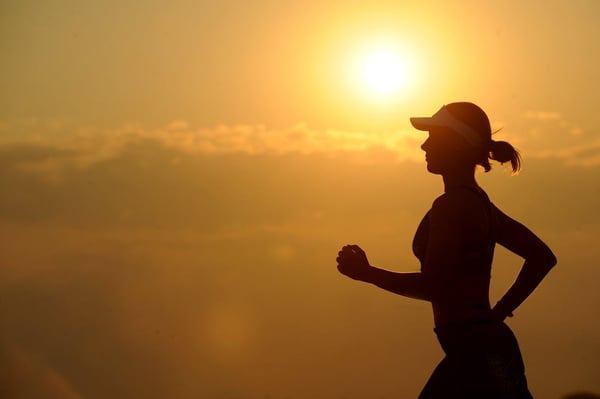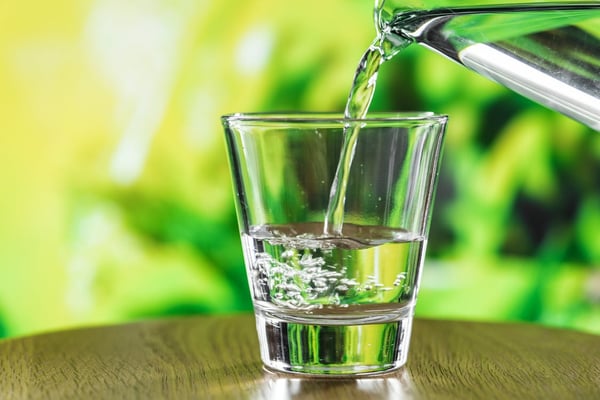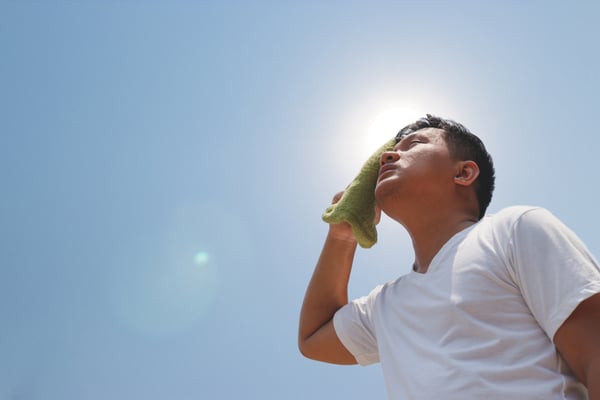The tropical climate of Thailand is known to be the hottest in Asia and its peak is from March to mid-May. This year, the rise of global temperature will be reflected in the upcoming extreme local weather. Extraordinary scorching heat in the summer is forecasted by climate experts in Thailand, with some parts in the North expected to experience temperatures of up to 42-43 degrees Celsius. Thailand is also predicted to suffer the hottest temperature among ASEAN countries. As such, there are raised concerns on the health implication imposed by the heat, ranging from mild heat rashes to deadly heat stroke.
Making a few adjustments in your daily activities can help you avoid unnecessary heat complications while still enjoying the sun. This is especially important for the city dwellers in Bangkok, which is already affected by the ‘urban heat island effect’. As the urban area is more densely populated and constructed, heat trapped inside the city contributes to higher temperatures compared to the surrounding or rural area.
Keep reading to learn some measures that you can take to make the most of your time during the hot season without jeopardizing your health:
Plan Your Activities Accordingly
If possible, plan your outside and active activities well; i.e early in the morning or late in the evening. As you probably spend more time indoors during the working days, plan your weekend to avoid excessive sun exposure also. If the temperature is unbearably hot, keep yourself indoors. If you are on an outdoor trip, always look for shade and cool off as much as possible before completing your journey instead of rushing to your destination.
Aside from the heat, take preventive measure to protect your health from the air pollution in Thailand. Although the air pollution level varies seasonally, it tends to be at its highest on hot, sunny days and cleaner after rainy or windy weather. If you are planning to exercise, avoid rush hour in busy traffic areas. Make use of parks, public spaces and keep a healthy distance from the road.

Keep Yourself Hydrated
Make sure you drink an adequate amount of water daily to keep you hydrated. Bring your own water supply when you are heading outside. Plain water should be the best choice as alcohol, caffeine, and carbonated drinks can act as a diuretic that leads to dehydration or slows the hydration process. The optimal water intake per day depends on body size, though the standard recommendation is at least 1.9 litres a day. Be more vigilant on the signs and symptoms of dehydration such as dark urine, headaches, muscle cramps and fatigue.
The intensive loss of fluid during the hot season can also affect your body minerals or electrolytes. This includes sodium, chloride, potassium, magnesium, and calcium. Instead of drinking commercial electrolyte replacement beverages that may be packed with sugar, artificial sweeteners, colours, and additives, try some fresh fruit juices to replenish your electrolytes.

Wear Lightweight Clothing
Keep your clothes on even if you are tempted to remove it in the heat. This is to reduce your body’s water loss to evaporation. Opt for loose, lightweight, light-coloured clothing made of cotton. Loose clothing allows enough air flow between the fabric and your skin so evaporation of sweat is possible. Lighter colours reflect sunlight, thus reflecting some heat. While cotton absorbs excess moisture on your body, which aids the evaporation process so your body can cool down.
Avoid Strenuous Activities
Exerting physical effort especially in hot weather can put more strain on your heart especially for sedentary individuals. Exertional heatstroke has also been found to occur in marathon athletes and during soldiers training in Thailand. The sufferers usually become severely ill with high fever and symptoms of system failures such as cardiovascular, circulatory and respiratory failure and even death. That’s why heat index (HI) values are used as preventive measures for heat stroke during military training. This shows that the weather can be challenging even for the most physically fit population. So, take breaks (in the shade) and don’t push yourself too hard.

Keep Your Body Cool
Place some ice in a bowl in front of your fan. The breeze will pick up cold water from the ice’s surface as it melts, creating a cooling mist. You can also bring some wet towels with you when heading outside. Soak it in cool water, wring it out, then wear it on the back of your neck. It will not only keep your skin nice and cool but also reduce water evaporation on your skin so you don’t have to sweat as much.
Avoid using handheld electric fans especially if the temperature outside is more than 35 degrees Celcius. Fans create air flow and a false sense of comfort, but they don’t do anything to actually reduce your body temperature. Instead of a fan, carry a misting bottle (not a spray bottle) outside to help you cool off.
Comprehensive health insurance is their to look out for you in the future, because sometime we don't know what's around the corner. Read our guide to help you find a health insurance that fits your lifestyle or maybe you want to dive right in and speak to one of our consultants about our tailor made plans.
.png)


